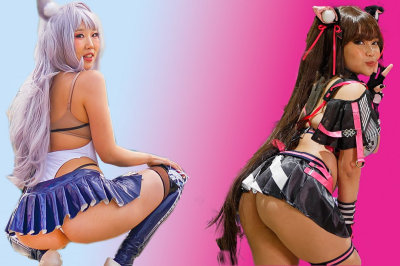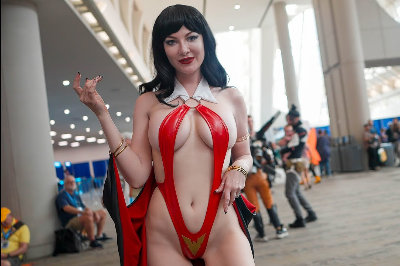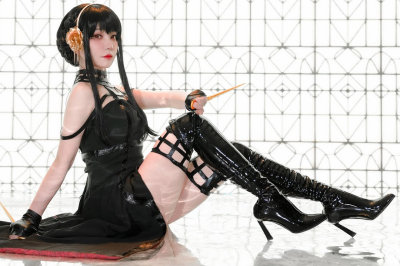STAR WARS: EPISODE II ATTACK OF THE CLONES - Q&A with director GEORGE LUCAS, HAYDEN CHRISTENSEN, SAMUEL L JACKSON, IAN McDIARMID, CHRISTOPHER LEE and producer RICK McCALLUM
Movie Interview by Kris Griffiths
The day before STAR WARS: EPISODE 2 ATTACK OF THE CLONES was unleashed upon the world, George Lucas and the boys were chilling out at London's Dorchester Hotel in Park Lane. At a brief press conference I caught up with Mr Lucas, Samuel L Jackson (Mace Windu), Hayden Christensen (Anakin Skywalker), Christopher Lee (Count Dooku), Ian McDiarmid (Palpatine) and Rick McCallum (Producer).
(To George Lucas) How much does this film match what you had envisaged all those years ago when you mapped out the original story and did you ever seriously think you would have the chance to fulfil it?
When I wrote it, it grew from one little movie which was Episode IV to a six-hour movie of Episode IV which included four, five and six. But I always wanted very much to start in the middle... I didn't want to start at the beginning because I don't like starting from beginnings... the first half is always not as entertaining. So I just figured out this method by saying 'well we just came into it in the middle' but of course I had to rationalise it so in order to get there I had to write a back-story. I had to figure out where everybody came from and what actually happened. My main object ultimately was to get those three films done. In the beginning when I first did it, I had to break it into three films and I was determined that, no matter what a failure the first one was, I would manage somehow to get those other two made and as it turned out that was the least of my problems. When I finished them I was kind of burned out. STAR WARS was written as a film within the technology that I had existing at the time and I pushed that technology as far as I could in the world of special effects and puppetry and every other trick I could use to tell the story. The story is very narrow and very controlled. The back-story wasn't. I didn't ever think I'd be making it into a movie, so when I finished RETURN OF THE JEDI I thought I'd finished with it. I went back to family and did a whole bunch of other things. When I eventually decided I was going to direct again, by that time we'd moved the technology and Industrial Light and Magic forward to the point where I saw that we could go to Coruscant, the capital of the galaxy, and it wouldn't cost me fifteen million dollars - we could do it reasonably. That's when I made the decision, even though it was a ten-year commitment, because now I could technically tell the story but before there wouldn't have been any point.
(To Ian McDiarmid) As you are a human link between then and now, and RETURN OF THE JEDI was nearly twenty years ago, can you explain the difference between filming the old movies and the new ones?
It's been great but very odd for me because when I first got the part I was one hundred and twenty years old and then twenty years later George invited me to resume the character who was roughly my own age but I was twenty years older, so it's been an interesting and complicated psychological journey. The most interesting thing, I suppose, is what's happened in the world of technology in those twenty years when you've been waiting for the technology to catch up with your vision, which it sure has. Having seen it last night in Leicester Square, London, a film that is filmed entirely digitally, I think we're seeing something entirely new. The quality is quite different of course, and I was trying to work out how you could describe it. I think it feels more liquid and sensual... it's not exactly 3D but you feel you are getting a more complicated and aesthetically pleasing experience. The technology makes it more beautiful, and if that's the future then I'm all for it.
(To Samuel L Jackson) You are continuing your role of course, and presumably will be continuing to continue. Did it develop in the way you would have liked it to develop?
Sure, in terms of who Mace Windu is and what his responsibilities are in relation to the story. I'm proud of having so much stature in the new film that I never imagined I'd have. It was a huge responsibility to step into something like this, especially to fans like myself of the saga and the whole genre. I treated what I had to do with the reverence it commanded.
(To Rick McCallum) You didn't completely desert us this time - a small part of the film's shooting was done in Britain but you principally shot it in Australia. What was the main reason behind this?
Do I have to answer that? It was a combination of things. We needed a stage space that we could have total control over, obviously it was more economical to shoot in Australia and there was a great talent base there, but in fact all of our heads of departments are British and we've had a long relationship with the same crew for about twelve years. So in effect we shot it in Australia but the main talent was British.
(To Hayden Christensen) In some ways yours was perhaps the toughest task of all because it was such a daunting prospect to play Anakin Skywalker, particularly for your generation. Exactly how daunted were you at the task of taking on the role of an already mythical figure ten years on from the last?
When I first knew I had got the part, the reality of what I would be doing overwhelmed me because it was so important to the saga and the interpretation of the role was so important for the audience. The hardest thing was trying to make the connection from what we saw of the character in EPISODE 1 to the future Darth Vader who would be the complete opposite of that. It was a pretty difficult task. When George cast me he said that he could see the darkness within me behind my eyes and that made me look at myself differently. Of course it was just pretend and only showed up in the test. I was kind of aware that I could exude the darker elements that were necessary to play this part properly. Playing Anakin was an amazing self-discovery process... really getting in touch with a darker side to myself which I never really knew existed.
(To Christopher Lee) You have duelled with many other actors in your career and here you have a three foot high opponent. Can you tell us technically how that worked?
Well you have to have a pretty vivid imagination for a start because he isn't there. It's not that much of a problem though. George says he's going to be down here then over there and he's going to do this then that, and you just perform accordingly. It's nothing like having the both of you acting in the same scene. The lightsaber fights have to be very carefully worked out... they're extremely complicated and by no means easy. Do I think technology gets in the way of acting? There is a danger, I think, that there are two extremes in making films these days: one is make-up and the other is special effects. Basically a film is a moving image. It's about faces... its about people. If you have an excess of make-up and special effects which aren't right for the film, you can find the poor actor in the middle with an avalanche on his left and a typhoon on his right trying to keep his head above water and trying to give a performance. So obviously it's a question of overdoing it. Now, in a film like STAR WARS, that doesn't arise. It's actually a terrific help to us, but I have been in films before where I have been literally swamped. For me there are two things that are immensely important about this film, one is that I am now part of cinema history, which is enormously important and secondly that I survived it.
Catch Dooku and Yoda battling it out in STAR WARS: EPISODE 2 ATTACK OF THE CLONES.



